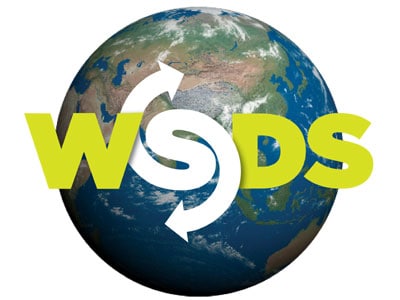

As the conference moved into late evening hours, with the schedule extended until 9pm, negotiators found themselves locked in discussions over the first draft of the NCQG text. This draft, which reflects contributions from both developed and developing countries, has become a focal point of concern due to the sheer number of brackets and options it contains. This extensive use of brackets often signals a lack of consensus and a reluctance to make difficult compromises.
Arunabha Ghosh, CEO of the Council on Energy, Environment and Water (CEEW), commented on the complexity of the draft text, saying, “The voluminous NCQG text with an abundance of brackets and options is indicative of various Parties maintaining their existing positions. Much more work needs to be done to achieve agreement on key aspects of the NCQG such as quantum, quality and timelines.”
For Ghosh, the ultimate aim is clear: “The NCQG should be aligned with the needs of developing countries and should amount to at least USD 1 trillion per year, composed primarily of grants and concessional finance. Climate finance must be concessional, catalytic, convenient, and credible.” His call for a robust financial package underscores the necessity for real, meaningful commitments rather than vague promises.
Concerns Over the Lack of Leadership and Progress
The High Ambition Coalition (HAC), which includes countries like Canada, France, and the Netherlands, voiced strong concerns over the slow pace of progress and the leadership vacuum. In a statement, the coalition emphasised the need for developed countries to “continue to take the lead and live up to existing finance commitments.” This echoes the frustrations of many who feel that the negotiations are stalling due to a lack of political will to drive significant agreements.
Meanwhile, Brazil made a notable announcement on its climate ambitions, pledging to reduce emissions by 59% to 67% by 2035, with a focus on adaptation measures. While this is a significant commitment, many were quick to point out that much more will be needed from developed countries, both in terms of financing and technological support, to make these goals achievable.
The Urgency of a Concrete Financial Package
In parallel to the financial negotiations, Prof. Purnamita Dasgupta, Chair of Environmental Economics and Head of the Environmental & Resource Economics Unit at the Institute of Economic Growth, weighed in on the NCQG draft. She emphasised the need for strategic and urgent climate action at an unprecedented scale, saying, “The end game is a collective goal (hopefully) of climate action at a scale hitherto unforeseen. This is the strategic, urgent and real-time deliverable that NCQG has to be held accountable to.”
For Prof. Dasgupta, the stakes are high: “The imperative is to set out a package which addresses not just the quantum of finance, but meaningfully bundles mechanisms of disbursement, transparency frameworks, maps milestones, respects equity principles, and benchmarks allocations for mitigation, adaptation and loss and damage. After all, that’s the ask, isn’t it?”
She pointed out that climate action cannot exist in a vacuum and must be framed within a broader context of trust and cooperation. “To enhance international trust and cooperation, negotiators need to signal to both member states and the private sector that these measures will not fall short like the last $100 billion pledge did.”
Prof. Dasgupta’s analysis reflects the growing concern that the failure to deliver on promises could undermine global confidence in the climate finance framework. Evidence, she noted, shows that the nature and type of finance are critical to achieving the required outcomes. She welcomed the multiple references to grants and concessional finance in the draft but raised concerns over the details: “Will the proposals have a common, firm and basic anchoring in the agreed Financial Mechanism that has been talked about in Article 9? Where is public finance in this discussion, and what would be its quantum in the pool?”
The complexity of the discussion also extends to the issue of arrears—a separate track for past obligations, which is distinct from future financial flows. As Prof. Dasgupta put it, “There is need for sharp clarity” on this matter, signaling that ambiguity could lead to further delays and confusion in meeting the global climate goals.
Looking Ahead: The Road to Agreement
As COP29 continues, the tension between the urgency of addressing climate change and the political inertia of some nations is becoming more evident. Developing countries continue to push for more equitable financing solutions, while developed countries are being called upon to step up and honor their commitments. The challenge now lies in overcoming entrenched positions, finding common ground, and building a financial mechanism that ensures climate finance flows in a way that is both concessional and credible.
The announcement from Brazil is a hopeful step forward, but as Ghosh and Dasgupta have pointed out, the real test lies in the details. How will the financial targets be structured? Will the mechanisms for distribution be transparent and fair? And crucially, can the international community find the leadership and diplomatic will to break the current stalemate?
As the negotiations continue into the next days, the call for action has never been more urgent. The world is watching, and the stakes are higher than ever.











